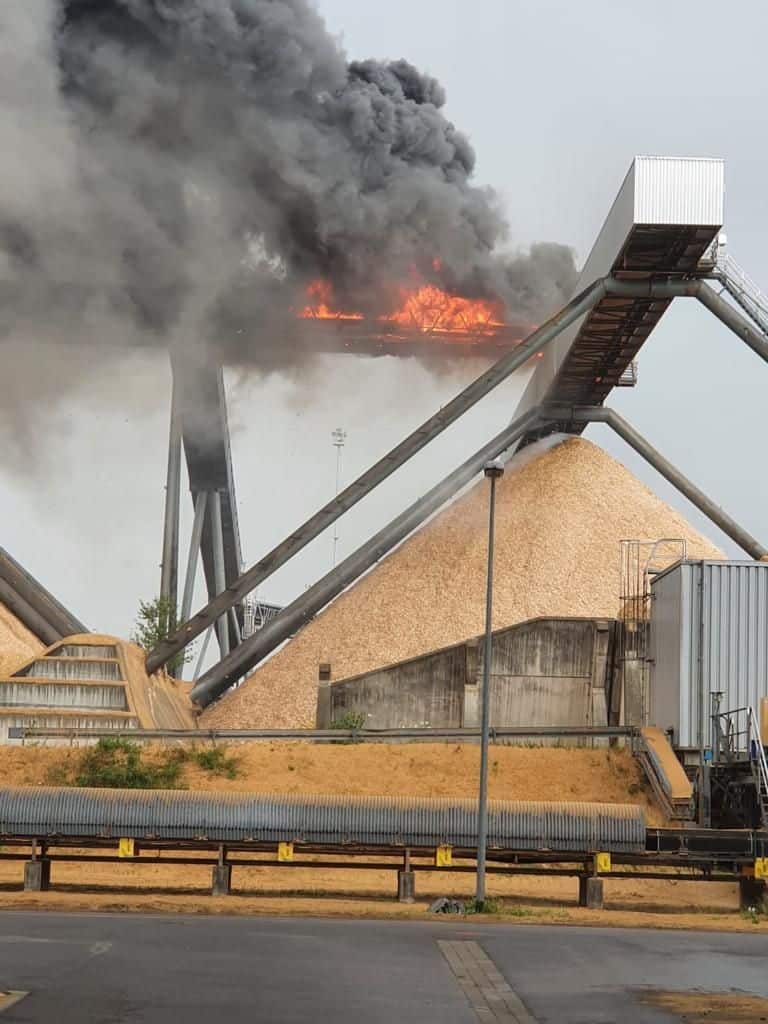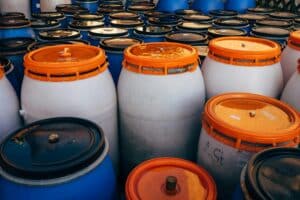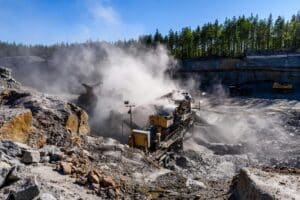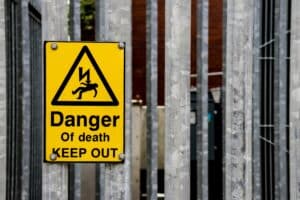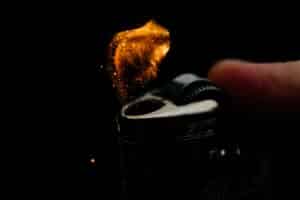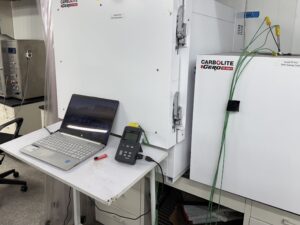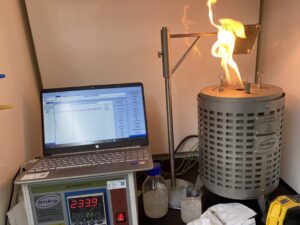We also offer
What is Bulk Powder Test
The Bulk Powder Test evaluates the self-heating properties of powders stored or processed in bulk form. It is commonly applied in scenarios such as powder accumulations in dryers, hoppers, silos, or packaging operations. This test helps determine whether bulk powders could undergo exothermic reactions under heat exposure, posing fire or explosion hazards.
Testing Principle and Methodology
The test uses a glass cylinder measuring 80 mm in height and 50 mm in diameter, with a sintered glass base. Technicians fill the cylinder with the test powder and place it in a uniform temperature oven.
Hot air flows around the glass cylinder while K-type thermocouples track temperatures at four different heights within the powder. Operators control the oven’s air temperature precisely to maintain consistent heating conditions.
-
Screening Test: Technicians raise the oven temperature at a rate of 0.5°C per minute until it reaches 400°C.
-
Isothermal Test: Using the onset self-heating temperature from the screening test, they repeat the procedure at different isothermal temperatures until accuracy falls within 2–10°C. Each isothermal test runs for 8–24 hours.
Applicable Standard
The Bulk Powder Test follows the procedure described by John Abbot in Preventing Fires and Explosions in Dryers.
Data Interpretation
-
If the onset self-heating temperature of the powder is more than 50°C higher than the oven temperature, exothermic activity is unlikely for up to 1 ton of material, and the test can be stopped.
-
If the temperature difference is less than 50°C, the onset temperature is below 200°C, or the operating cycle is longer than the test period, an additional isothermal test is required. This test is conducted at 50°C above the intended drying temperature and for a duration longer than the maximum drying or heated storage time.
When to Perform Bulk Powder Test
This test simulates conditions where bulk powders (up to 1 ton) are exposed to heated air in processing environments. It is essential for determining safe operating limits and preventing thermal runaway or spontaneous ignition in industrial settings.
Why Choose Prime Process Safety Center
-
Expertise: Highly experienced laboratory personnel with extensive knowledge in bulk powder testing.
-
Advanced Equipment: State-of-the-art testing systems for precise and sensitive measurements.
-
Quality Assurance: Strict protocols and quality control for reliable and defensible results.
- Accreditation: Testing performed in our ISO/IEC 17025:2017 accredited laboratory, ensuring recognized competency and adherence to international quality standards.
-
Actionable Insights: Expert analysis and recommendations tailored to your processes.
FAQ
What is Bulk Powder Test?
Answer: The Bulk Powder test is used to evaluate self-heating properties of bulk powders powder in situations when it is heated in bulk form.
How does the Bulk Powder Test work?
Answer: In the bulk powder test the powder placed in a uniform-temperature oven in a glass test tube. The temperature of the oven as well as the powder temperature is monitored at four different heights within the glass cylinder to monitor any exothermic activity.
What types of industries commonly conduct the Bulk Powder Test?
Answer: Industries handling powders, such as chemical manufacturing, food processing, pharmaceuticals, and those dealing with combustible materials, often perform this test to evaluate the fire and explosion risks associated with airborne powders.
What safety precautions should be considered during the Bulk Powder Test?
Answer: Safety measures, including proper ventilation, controlling ignition sources, using appropriate protective equipment, and conducting the test in a controlled environment, are essential to prevent accidents during the test.
What are the implications of the Powder Test results for industry?
Answer: Test results provide valuable insights into the potential fire and explosion hazards associated with airborne powder clouds, helping industries establish safety protocols, implement preventive measures, and ensure workplace safety.


